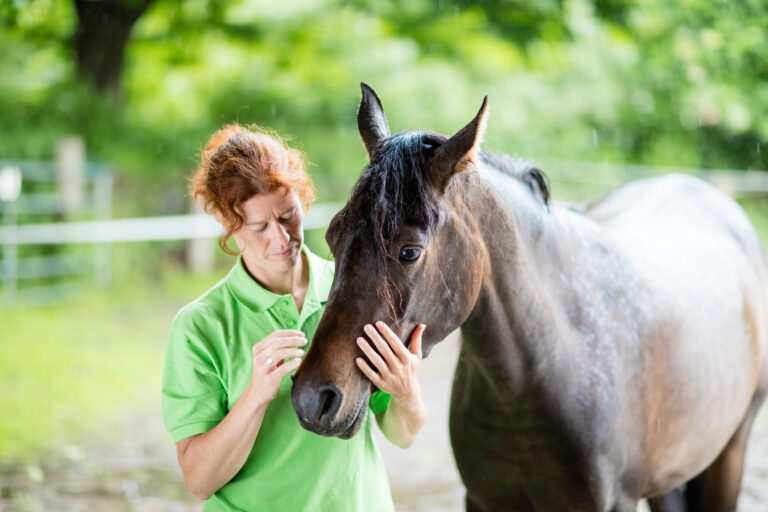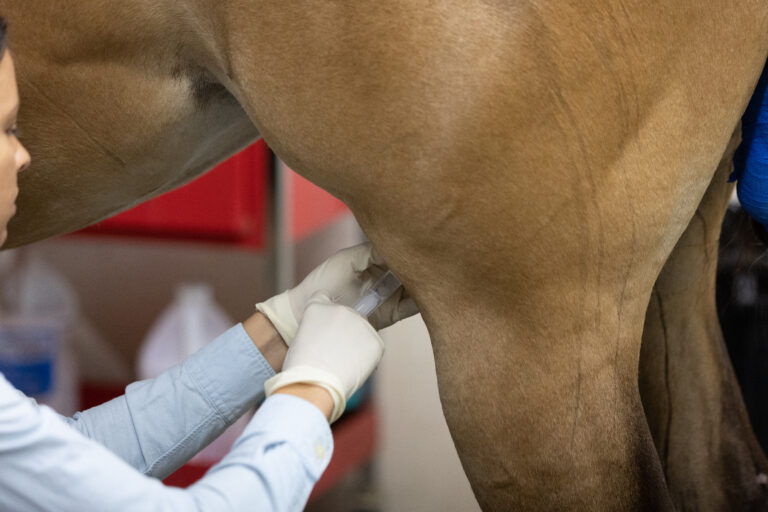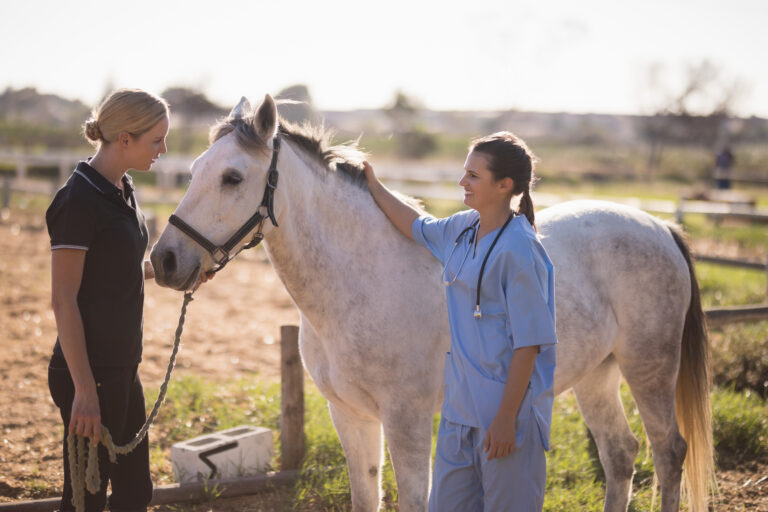
It is not uncommon for equine veterinarians to hit their heads. Whether thrown back against a wall, struck with a hoof while placing a needle, or smacked by a horse’s head during anesthesia recovery, it is fairly easy to get your bell rung. In the general population, falls and contact sports are the most common causes of concussions.
A concussion is a mild traumatic brain injury that affects brain function. The effects of a concussion can include headaches and trouble with concentration, memory, balance, mood, and sleep. Not everyone who experiences a blow to the head gets a concussion. Although some concussions cause the person to lose consciousness, most do not. Losing consciousness generally signals a more significant concussive force.
Concussion Symptoms
When you hit your head with some force, your brain bounces inside your skull, which can cause bruising and tearing of small blood vessels. Symptoms of a concussion might include headache, ringing in the ears, nausea, vomiting, fatigue or drowsiness, and blurry vision. You might also feel confused, have amnesia surrounding the event, or have dizziness and “see stars.” The people you interact with might notice you slurring your words, asking repetitive questions, or not making sense. If you develop any of these signs, it is extremely important to seek care at the emergency room.
Post-Concussion Imaging
Brain imaging is generally appropriate for people who have had a blow to the head, because a closed hemorrhagic traumatic brain injury can be fatal. Imaging tests can determine whether the injury has caused bleeding or swelling inside the skull. Doctors will typically perform a CT or MRI scan.
Concussion Recovery Process
After the acute phase of injury, you might experience trouble with concentration and memory, irritability and other personality changes, sensitivity to light and noise, trouble sleeping, feeling emotional or depressed, and changes in taste and smell. Recovery time is variable, depending on the degree of your injury. During the first week, the treatment plan generally includes avoiding screens, reading, and tasks that require concentration. After that, limit physical and mental activities that worsen symptoms, gradually increasing them as you can tolerate them.
Final Thoughts
If you have experienced repeated concussions over many years, you might be at a higher risk of developing chronic traumatic encephalopathy, so consider using a helmet for high-risk activities, utilize sedation of patients when necessary, and always think about protecting your head. Your brain is a valuable asset!
Related Reading
- Vet Wellness Briefs: Preventing Chronic Pain
- Veterinary Wellness Briefs: Living With Chronic Pain
- Veterinary Wellness Briefs: Aging Gracefully
Stay in the know! Sign up for EquiManagement’s FREE weekly newsletters to get the latest equine research, disease alerts, and vet practice updates delivered straight to your inbox.

![[Aggregator] Downloaded image for imported item #18808](https://s3.amazonaws.com/wp-s3-equimanagement.com/wp-content/uploads/2025/11/06141153/EDCC-Unbranded-17-scaled-1-768x512.jpg)


